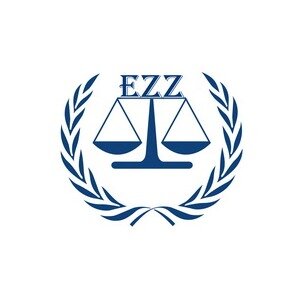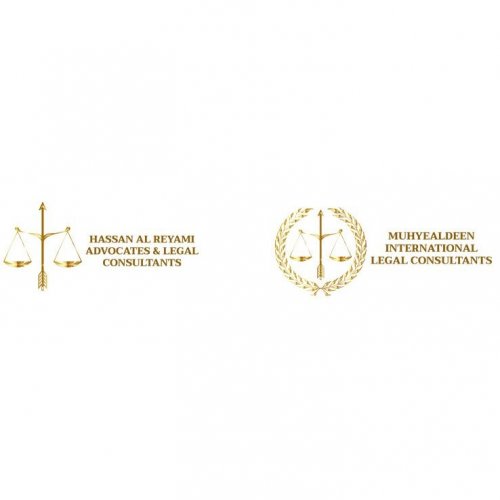Best Mortgage Lawyers in Abu Dhabi
Share your needs with us, get contacted by law firms.
Free. Takes 2 min.
Free Guide to Hiring a Real Estate Lawyer
List of the best lawyers in Abu Dhabi, United Arab Emirates
About Mortgage Law in Abu Dhabi, United Arab Emirates
In the United Arab Emirates, Abu Dhabi in particular, Mortgage Law is governed under Federal Law No. 14 of 2018. The law lays out specific provisions designed to protect both lenders and borrowers involved in mortgage transactions. The law applies to both residential and commercial mortgages. It defines a mortgage as a contract that provides security against a loan which a lender extends to a borrower for purchasing property.
Why You May Need a Lawyer
There are various instances where you would require the assistance of a lawyer in Abu Dhabi when it comes to mortgages. These situations may include: understanding and reviewing mortgage contracts, resolving disputes with a lender, dealing with foreclosure proceedings, navigating refinancing processes, and applying for or structuring a mortgage. Given the complexities of the law, it is always beneficial to have a lawyer who can represent your best interests.
Local Laws Overview
The key aspects of local laws related to mortgages in Abu Dhabi include a stipulation that all mortgages must be registered with the Abu Dhabi Land Registry. The law also stipulates that only registered properties can be mortgaged. Furthermore, the property cannot be sold or transferred while the mortgage exists without the approval of the mortgagee. Additionally, in the event of a borrower's insolvency, the law provides protection to the lender.
Frequently Asked Questions
1. Can a foreigner obtain a mortgage in Abu Dhabi?
Yes, foreigners are allowed to get mortgages for properties in designated investment zones. However, they may face stricter conditions and requirements compared to UAE nationals.
2. What happens if I can't pay my mortgage?
If you fail to repay your mortgage in Abu Dhabi, the lender has the right to sell the property to recover the debt. The process is governed by specific provisions outlined in the local mortgage law.
3. Can I pay off my mortgage early?
Yes, you can pay off your mortgage early, however, it is vital to check whether your contract has provisions for early repayment fees. A lawyer can assist you in understanding these contract terms.
4. What is the maximum loan-to-value (LTV) ratio for mortgages?
The LTV ratio for UAE nationals is 80% if the property value is below AED 5 million and 70% if the value is above AED 5 million. For expatriates, the LTV ratio is 75% if the property value is below AED 5 million and 65% if the value is above AED 5 million.
5. Can I mortgage more than one property?
Yes, the law allows an individual or entity to mortgage more than one property. However, each property is considered a separate mortgage with its own terms and conditions.
Additional Resources
For further information, you can approach the Abu Dhabi Judicial Department or the Abu Dhabi Land Registry. The Central Bank of the UAE can also be a valuable resource concerning mortgage regulations.
Next Steps
If you require legal assistance with your mortgage in Abu Dhabi, the first step is to consult with a lawyer who specializes in property law. Compile any relevant documents, such as your mortgage contract, payment records, and any correspondence with the lender. Clear communication of your situation and needs to your lawyer will ensure they can guide and assist effectively.
Lawzana helps you find the best lawyers and law firms in Abu Dhabi through a curated and pre-screened list of qualified legal professionals. Our platform offers rankings and detailed profiles of attorneys and law firms, allowing you to compare based on practice areas, including Mortgage, experience, and client feedback.
Each profile includes a description of the firm's areas of practice, client reviews, team members and partners, year of establishment, spoken languages, office locations, contact information, social media presence, and any published articles or resources. Most firms on our platform speak English and are experienced in both local and international legal matters.
Get a quote from top-rated law firms in Abu Dhabi, United Arab Emirates — quickly, securely, and without unnecessary hassle.
Disclaimer:
The information provided on this page is for general informational purposes only and does not constitute legal advice. While we strive to ensure the accuracy and relevance of the content, legal information may change over time, and interpretations of the law can vary. You should always consult with a qualified legal professional for advice specific to your situation.
We disclaim all liability for actions taken or not taken based on the content of this page. If you believe any information is incorrect or outdated, please contact us, and we will review and update it where appropriate.

















